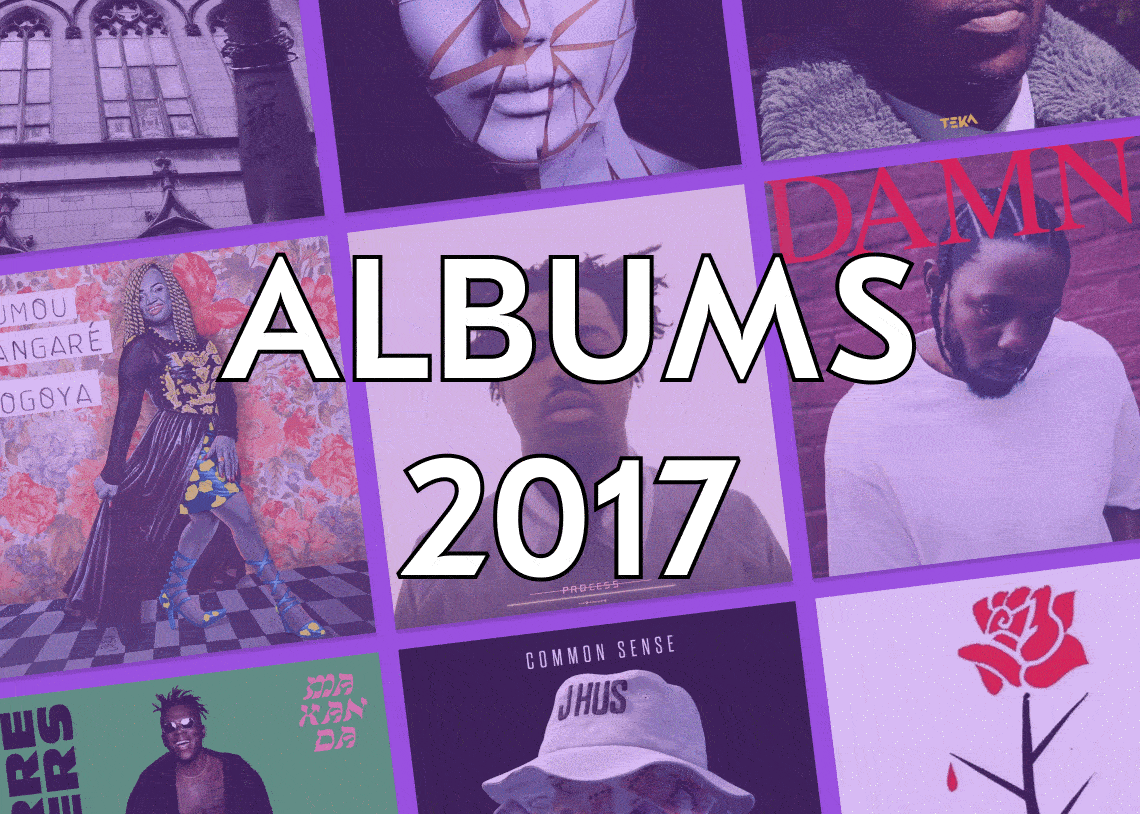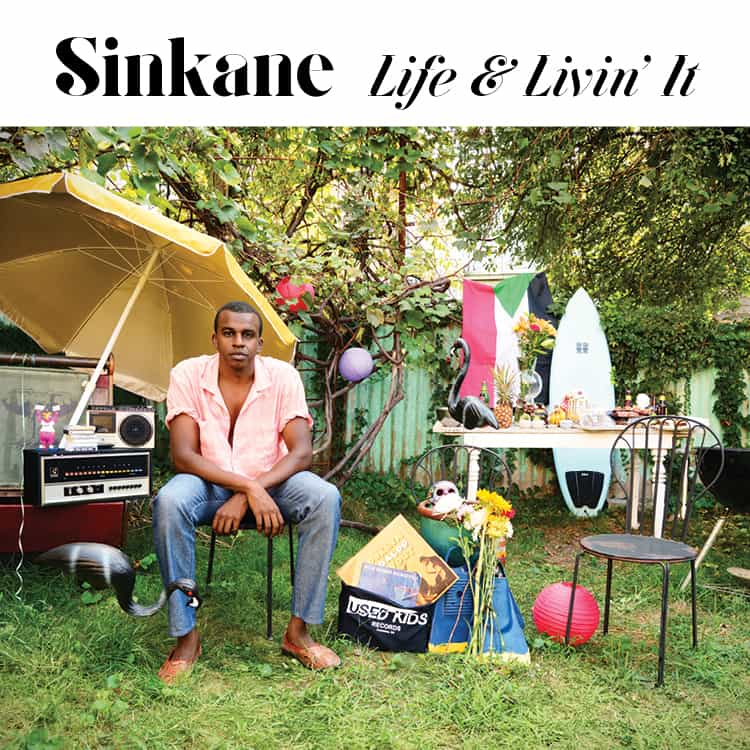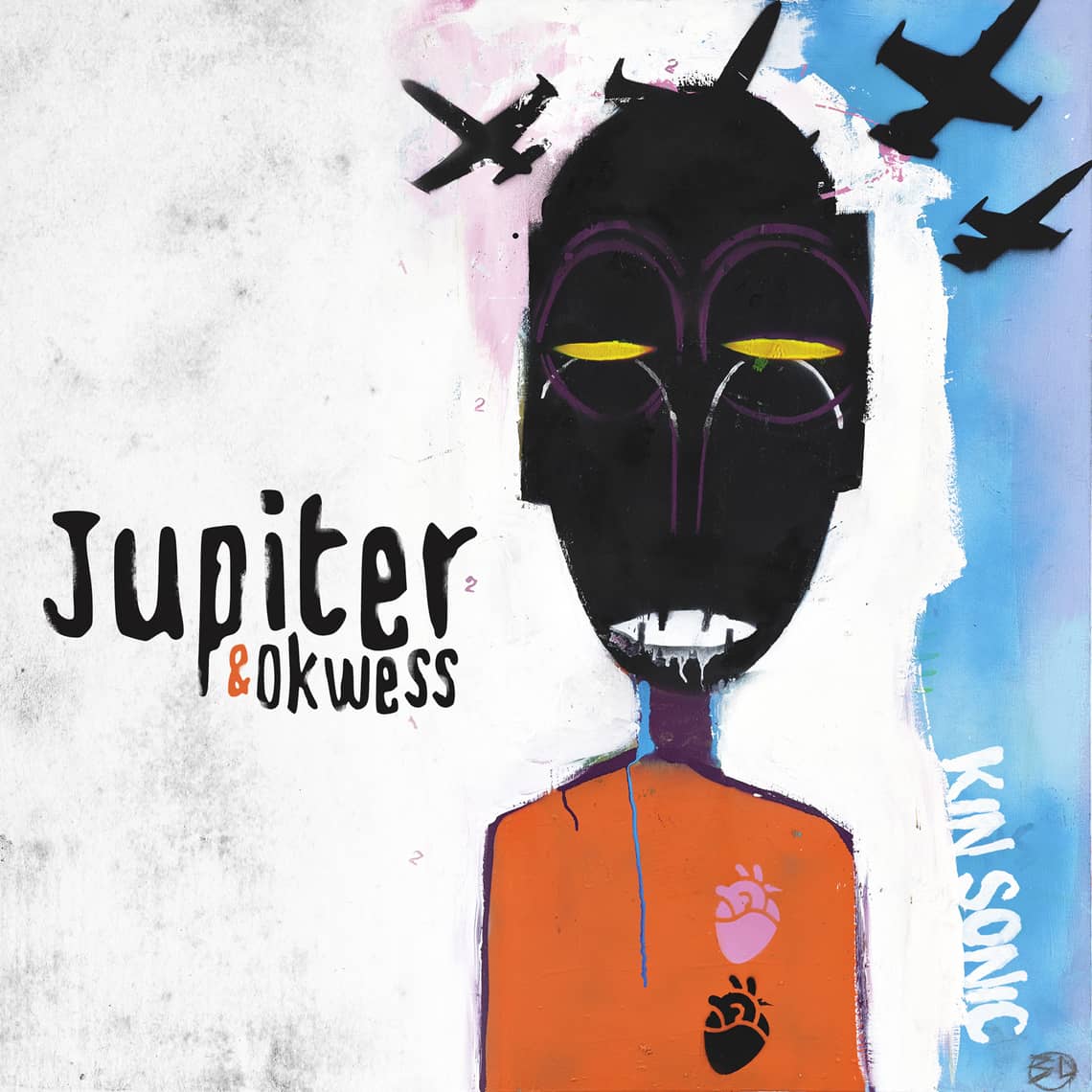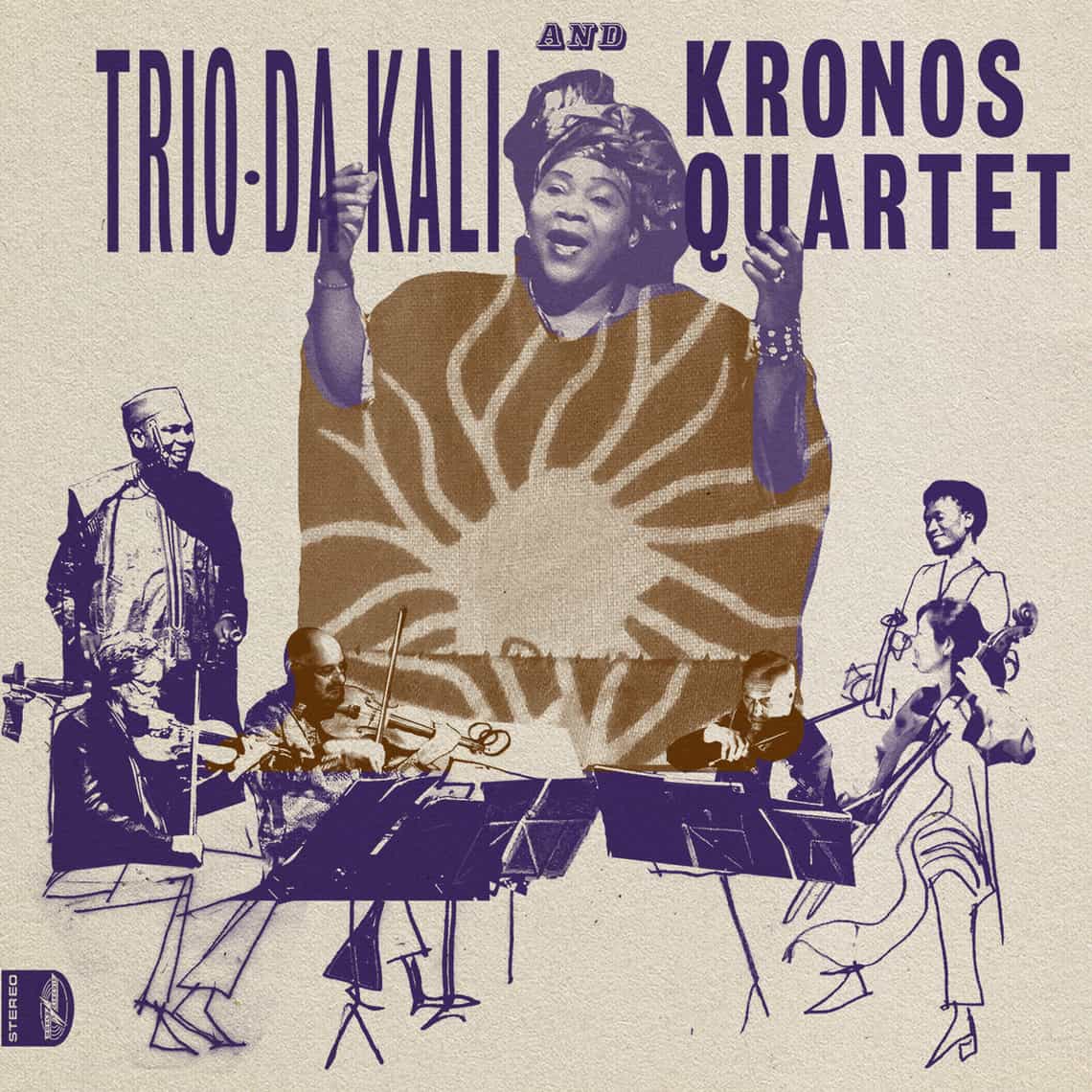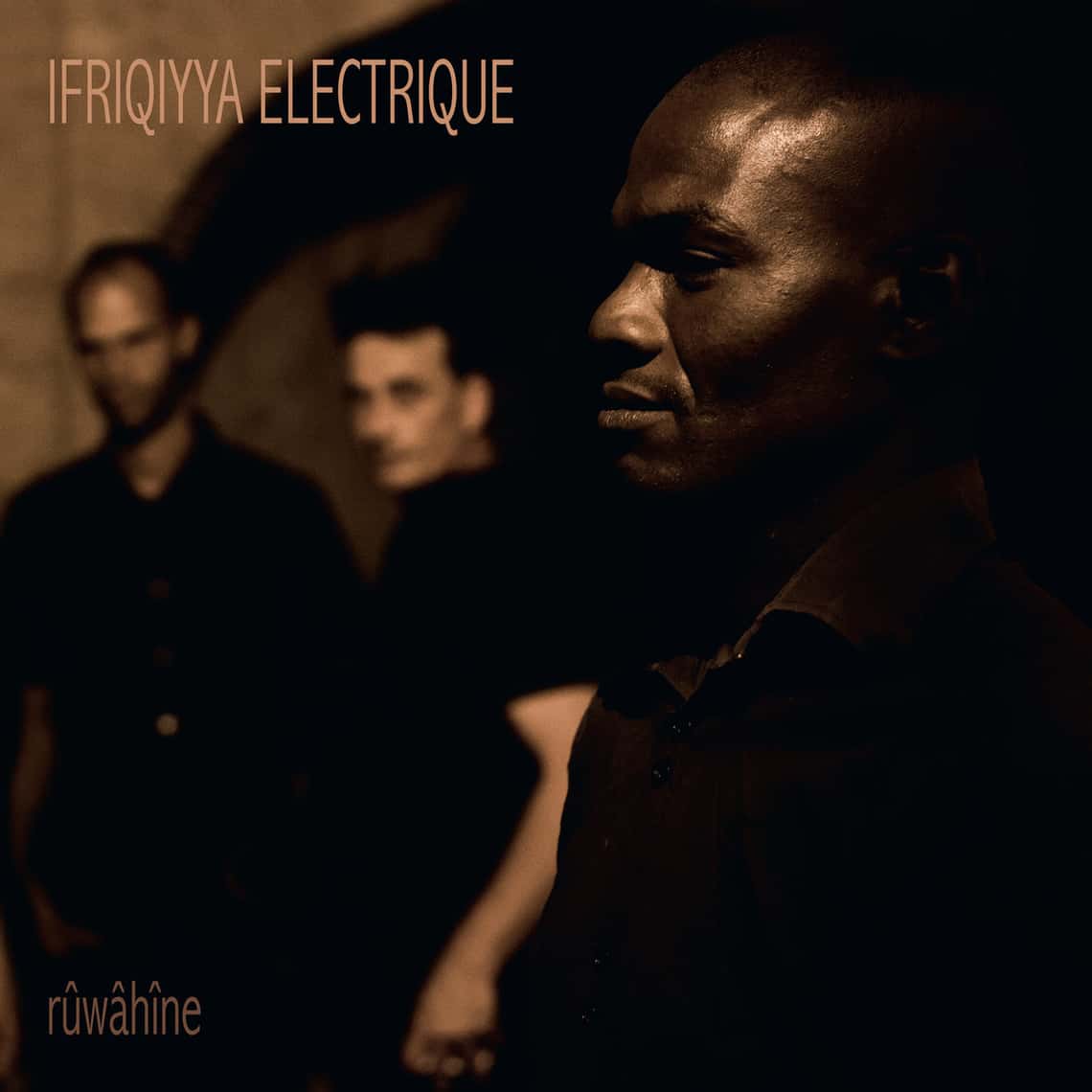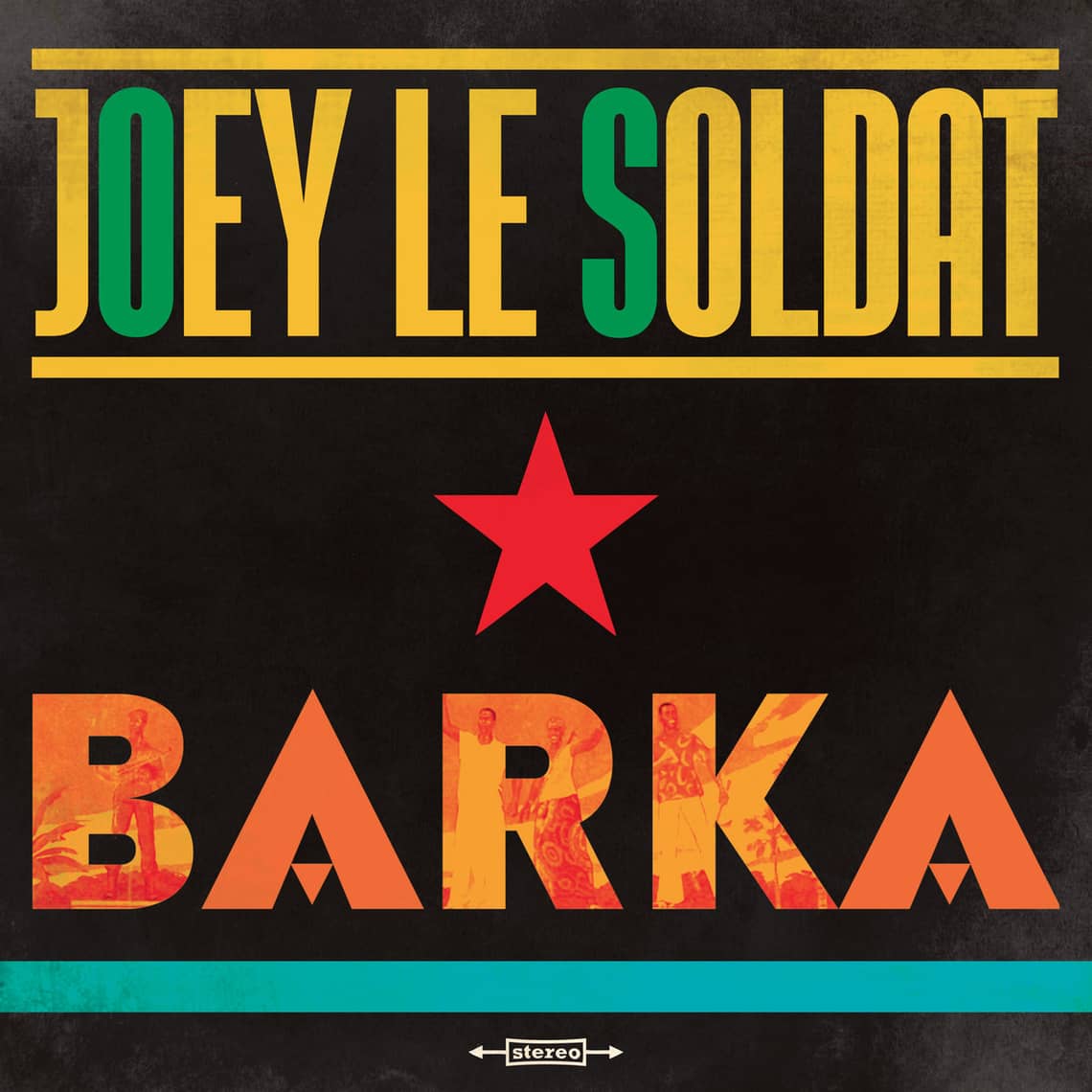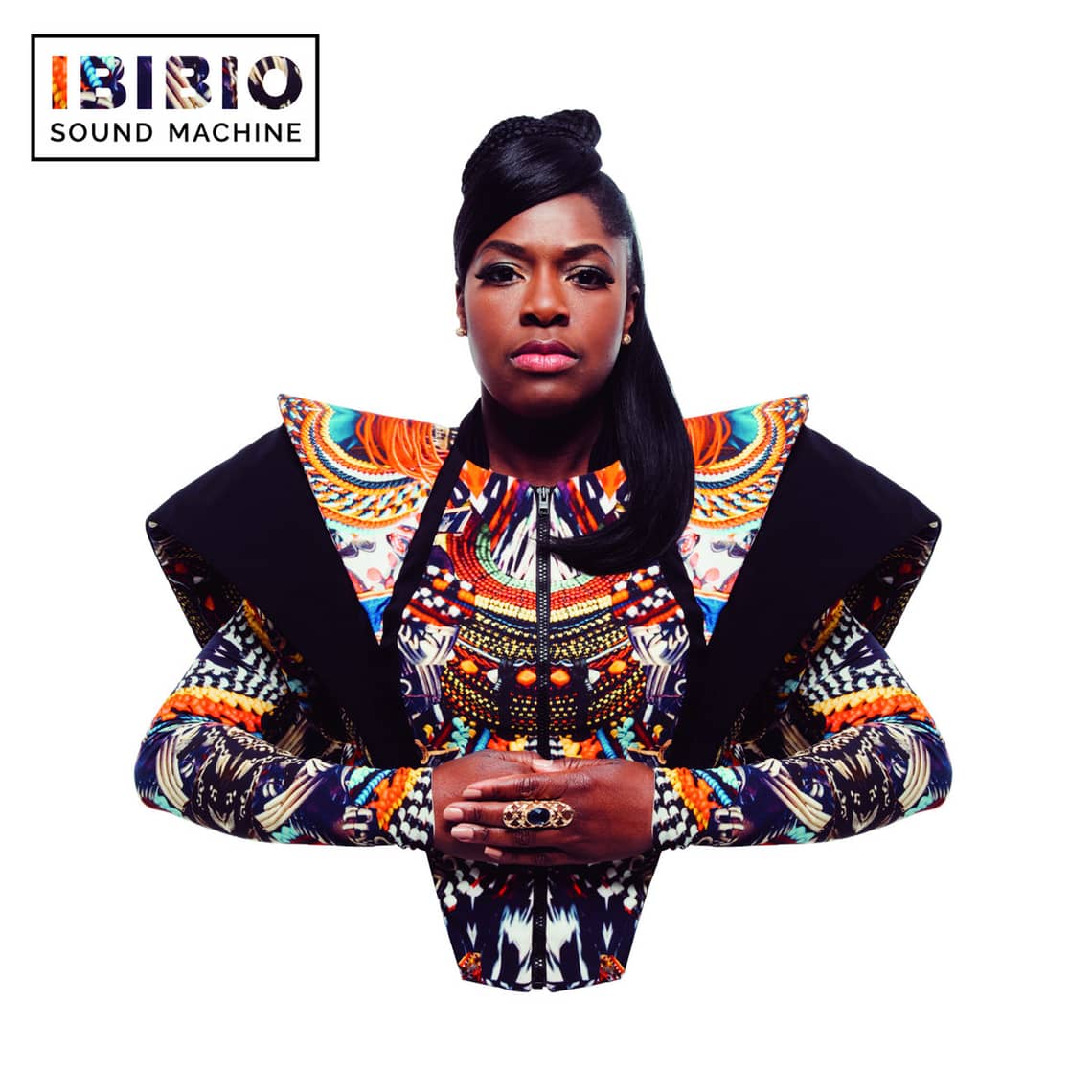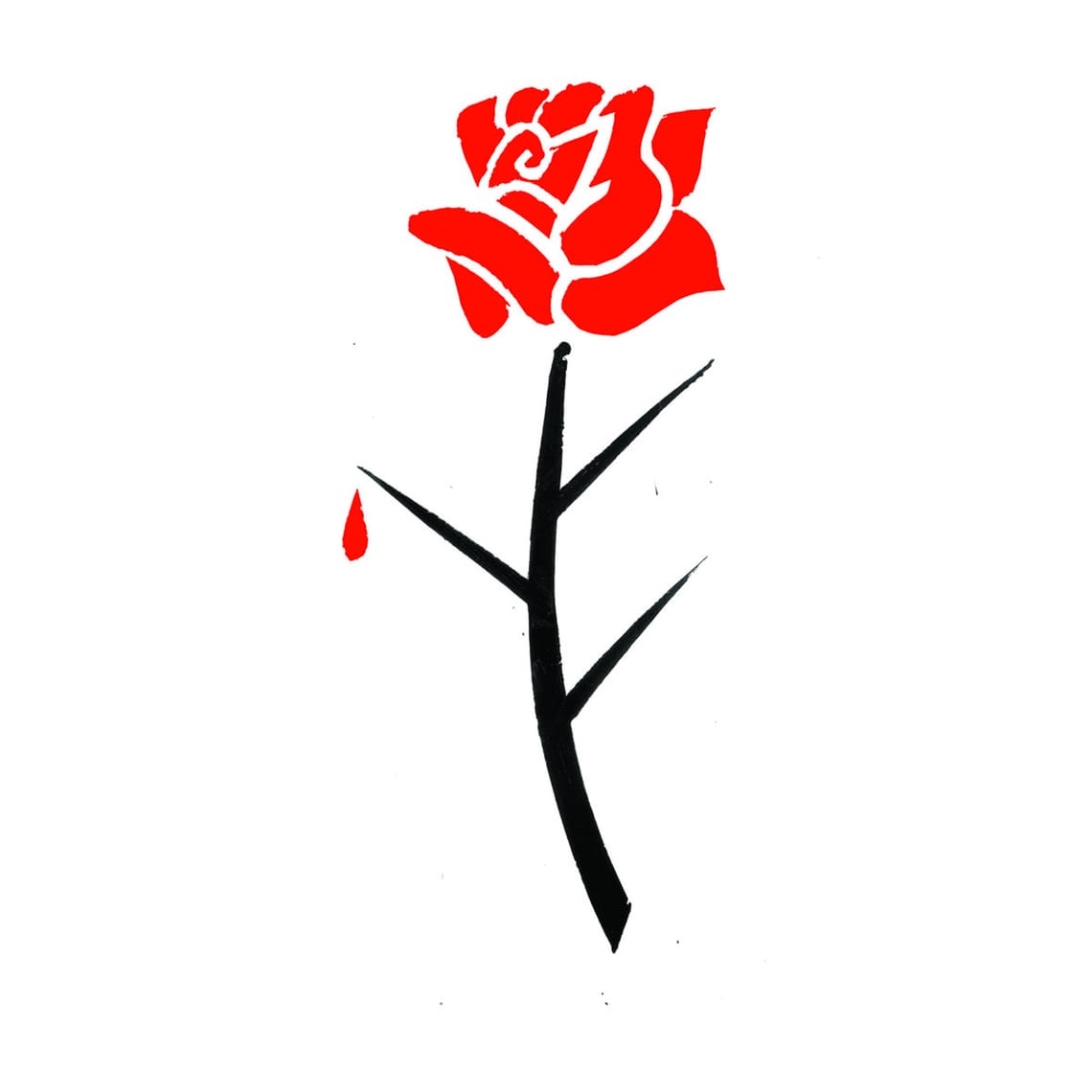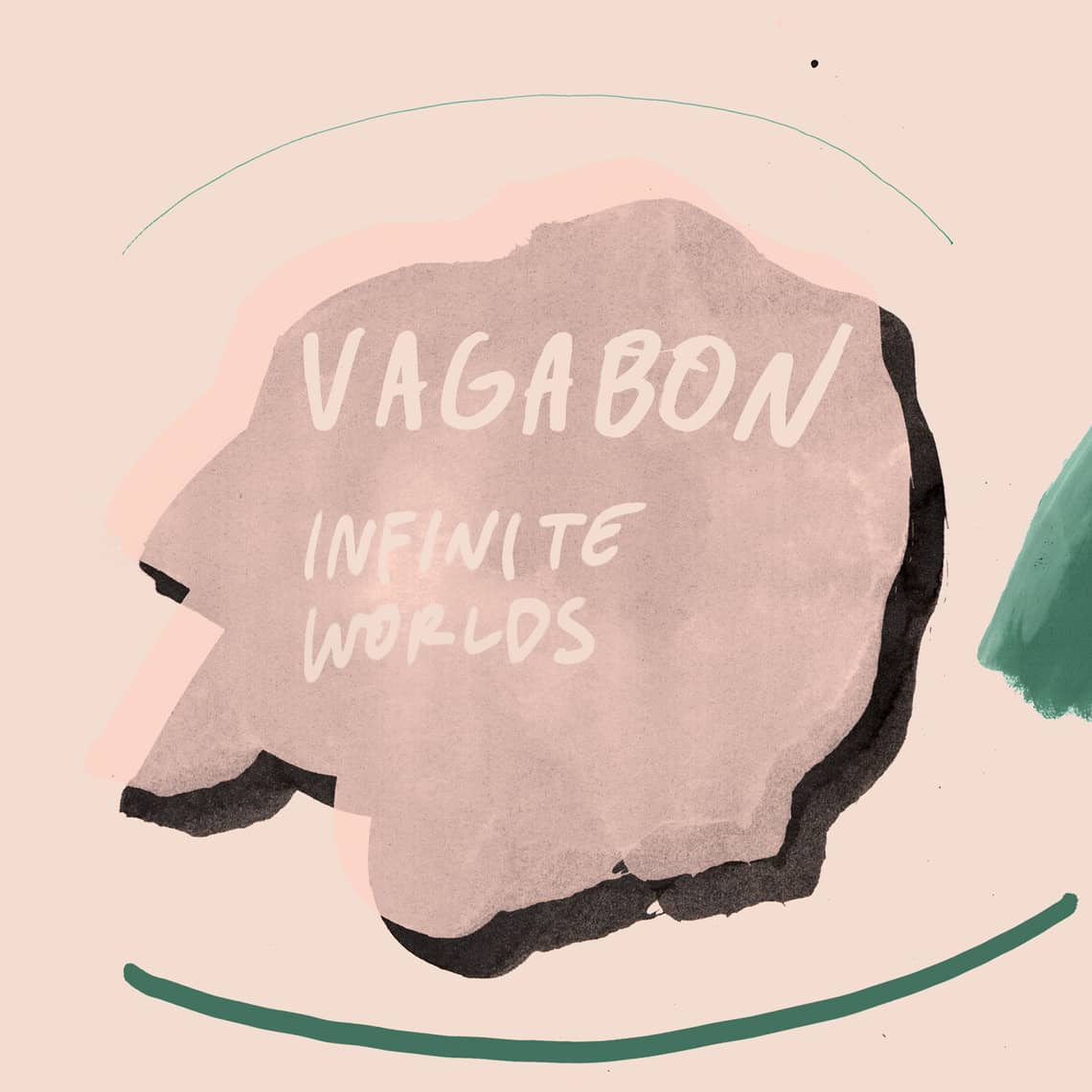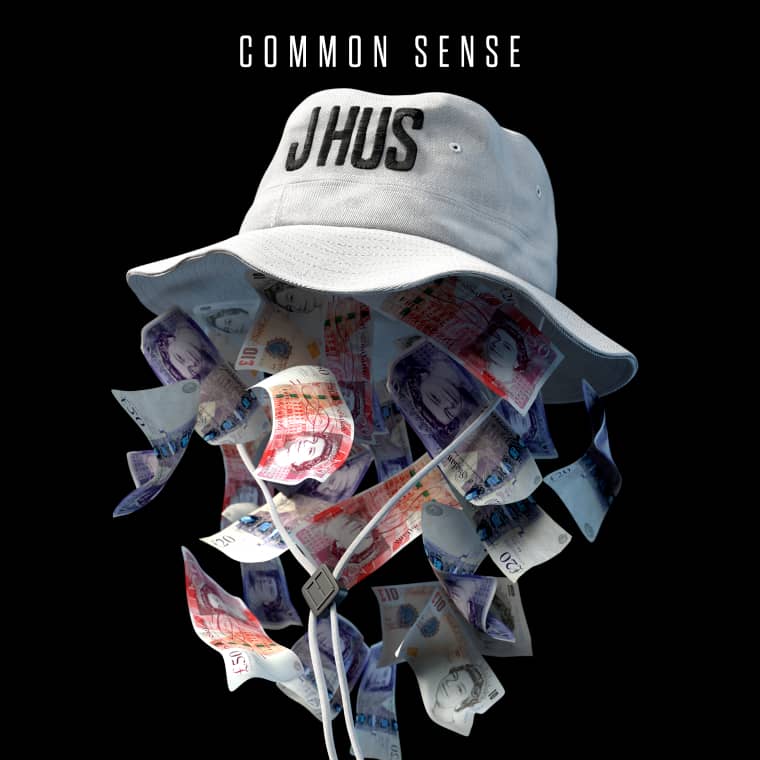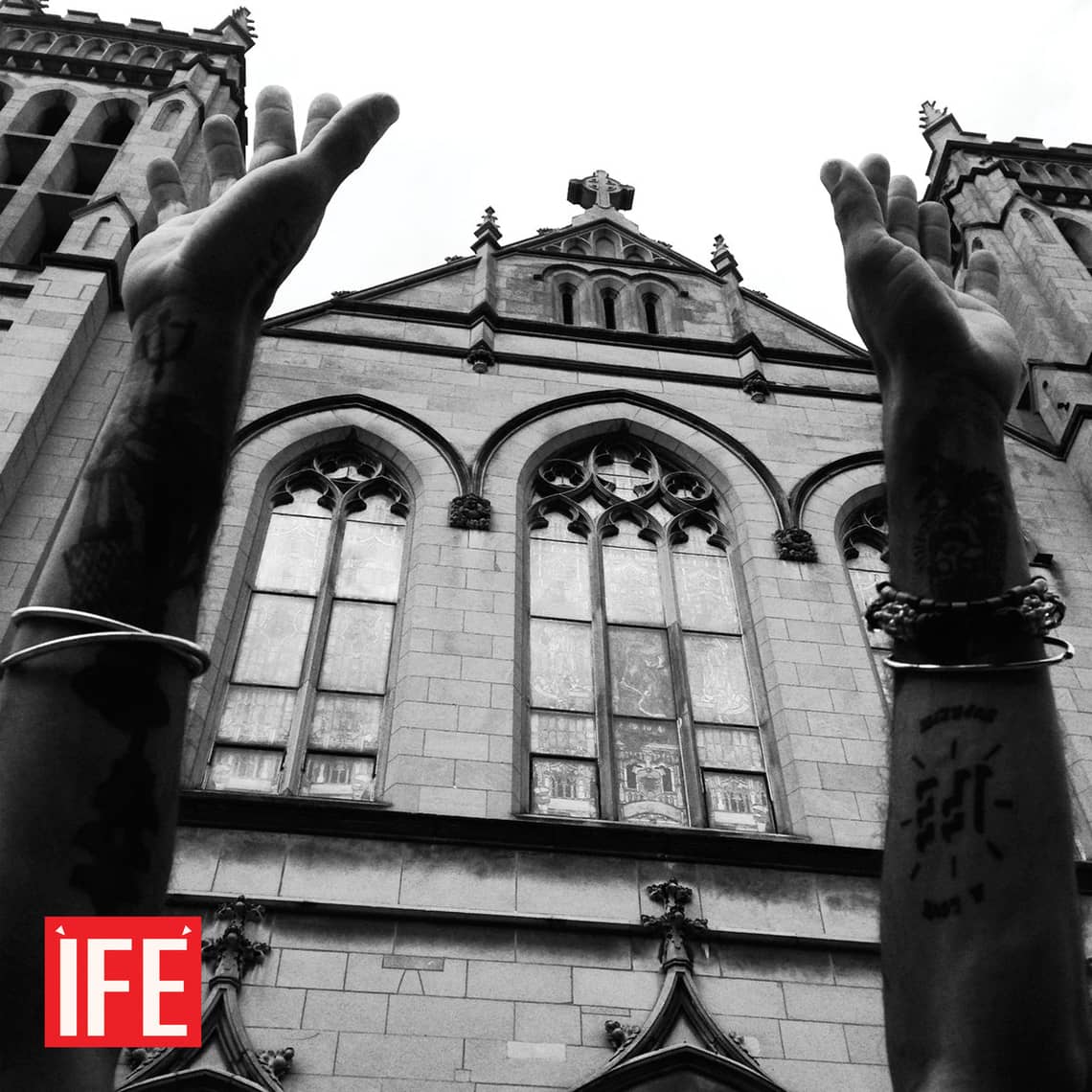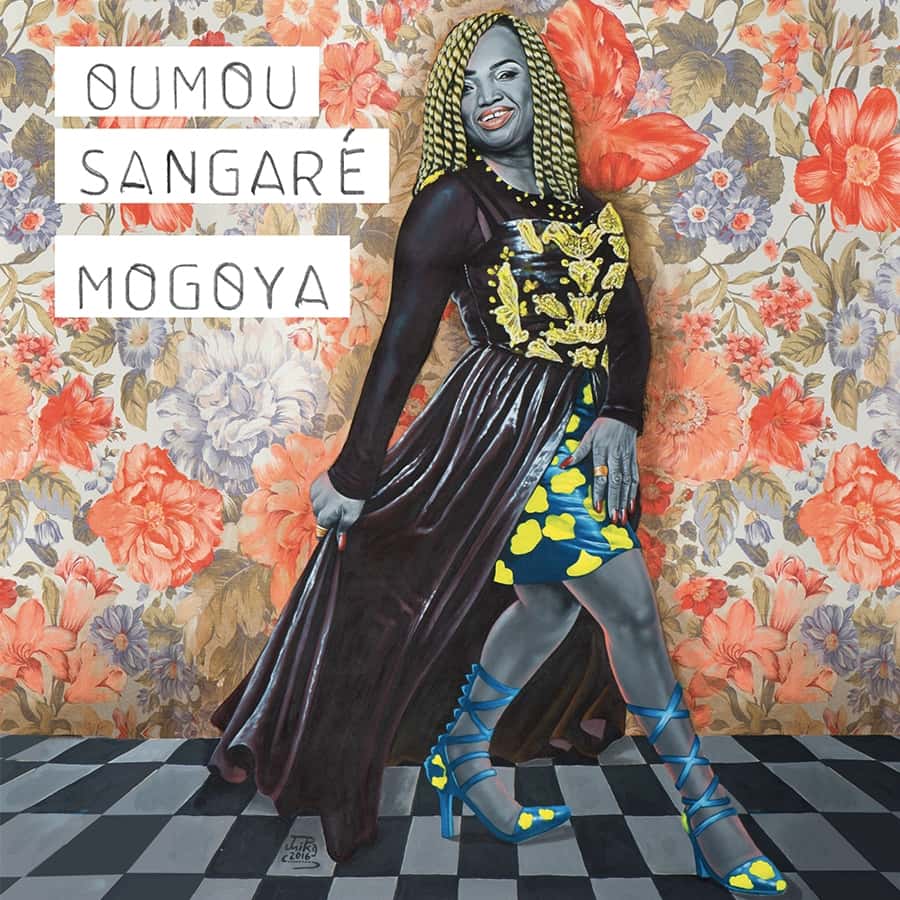PAM’s music critics share their nominations for the best Pan-African albums of the year.
The list below is made up of personal favorites to the Pan African Music team, and is just a small roundup of the albums that we can’t get enough of this year.
Listen to selections from this list on our Spotify and Deezer playlist.
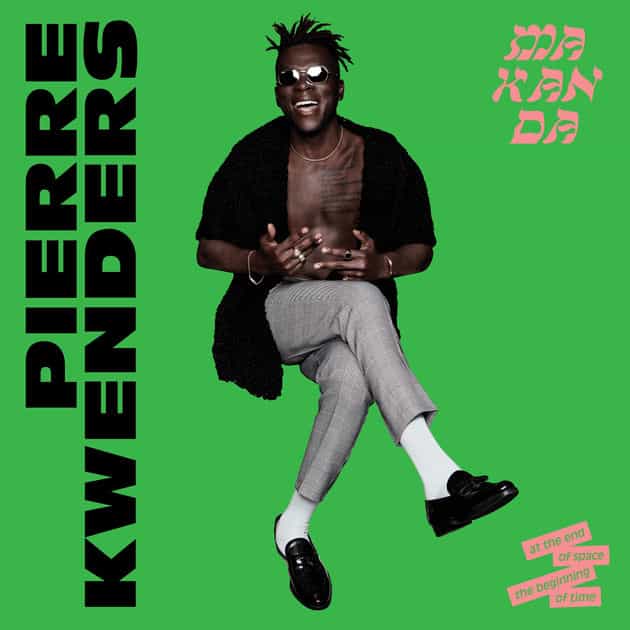
20. Pierre Kwenders
Makanda, at the End of Space, the Beginning of Time
After two EPs and a debut album (Le Dernier Empereur Bantou) that explored an eclectic range of music genres and themes, Pierre Kwenders asserts himself with elegance and afro-futurist fashion on his second LP, aptly titled Makanda at the End of Space, the Beginning of Time. The record is a typical diaspora album: a collective work by African people spread between Montreal and Seattle. Pierre was born in Kinshasa and moved to Canada as a teenager. His workmate, Tendai Maraire, was born in the USA and his father was a Zimbabwean ethnomusicologist. The result is a true break from labels and clichés.
You can instantly tell Pierre Kwenders found his musical identity with this album: he sings and raps in Lingala, Tshiluba, French and English languages – yet he remains somehow very much in his comfort zone, technically speaking, this being the only drawback of the album. Kwenders talks a lot about love too, particularly love and it’s introspectiveness.
19. Labelle
Univers-île
Born to a French-born mother and a Creole Réunion-rooted father, Jérémy Labelle makes music to come to an understanding with his identity or, even, his “sense of belonging”, ever-changing and multiple. This is a concept the artist borrowed from French philosopher Michel Serres, one of his great inspirations along with musicians Alice Coltrane and Danyel Waro, and scientist Isaac Asimov.
Oscillating between syncretic spirituality, inner journey and infinite blending, the young Réunion-based and born musician shares an impressive, deep reflection.
Univers-île opens with a funeral oration (“Kou d’zèl”) and ends with “Noûs” – meaning “the thought” in Greek philosophy – and the aptly titled “Playing at the end of the Universe”, suggesting that death would be the ultimate and universal answer to the quest of individual belonging. The young enthusiast for inner and outdoor journeys confirms: “my quest for personal identity aims to solve the questions ‘who am I, and who will I be after death?’. Well, if you remain attentive to nature in its entirety, you’re no longer afraid of death.”
18. Sinkane
Life & Livin’ it
Life And Livin’ it from Sudanese artist Ahmed Gallab aka Sinkane is an ode to Curtis Mayfield and George Clinton’s funk and William Onyeabor’s African sound. The slinky funk and soul grooves are all there, and with them the sparkling melodies taking roots in sub-Saharan Africa. Life & Livin’ is true to its name: it’s an album whose themes cover all kinds of experiences, and an uplifting take on the universal feeling of soul.
“I definitely talk about Sudan,” admits Sinkane, “but more than anything I talk about my identity as a Sudanese person, and the issues I have dealt with, living in Sudan and living outside of Sudan. Because there are a lot of people who are like me, whose families have fled the country. I mean, a third of the Sudanese population lives outside of Sudan, so there are many people who have grown up very similarly to me. There are a lot of people who have dealt with identity issues because they have grown up outside of their homeland and lived among people who are very different from them.”
17. Jupiter & Okwess
Kin Sonic
Magical and atypical figure of the Kinshasa music scene, Jupiter Bonkodji returns with Kin Sonic: 11 songs that convey the spirit of the 12-million inhabitant capital city. “The strength, the mirror, the lungs of Congo, this corner that brings together all the diversity of ethnic groups in the country”, says Jupiter Bonkodji.
“Our mission is not to make millions”, he adds. “It’s to open the door so that people know that apart from the rumba that has had its day, there is really a cultural diversity in Congo nowadays. We address ourselves to the future generation and we say to them: this is our richness, and it is immense, inexhaustible, unexplored and infinite. Look at her!”
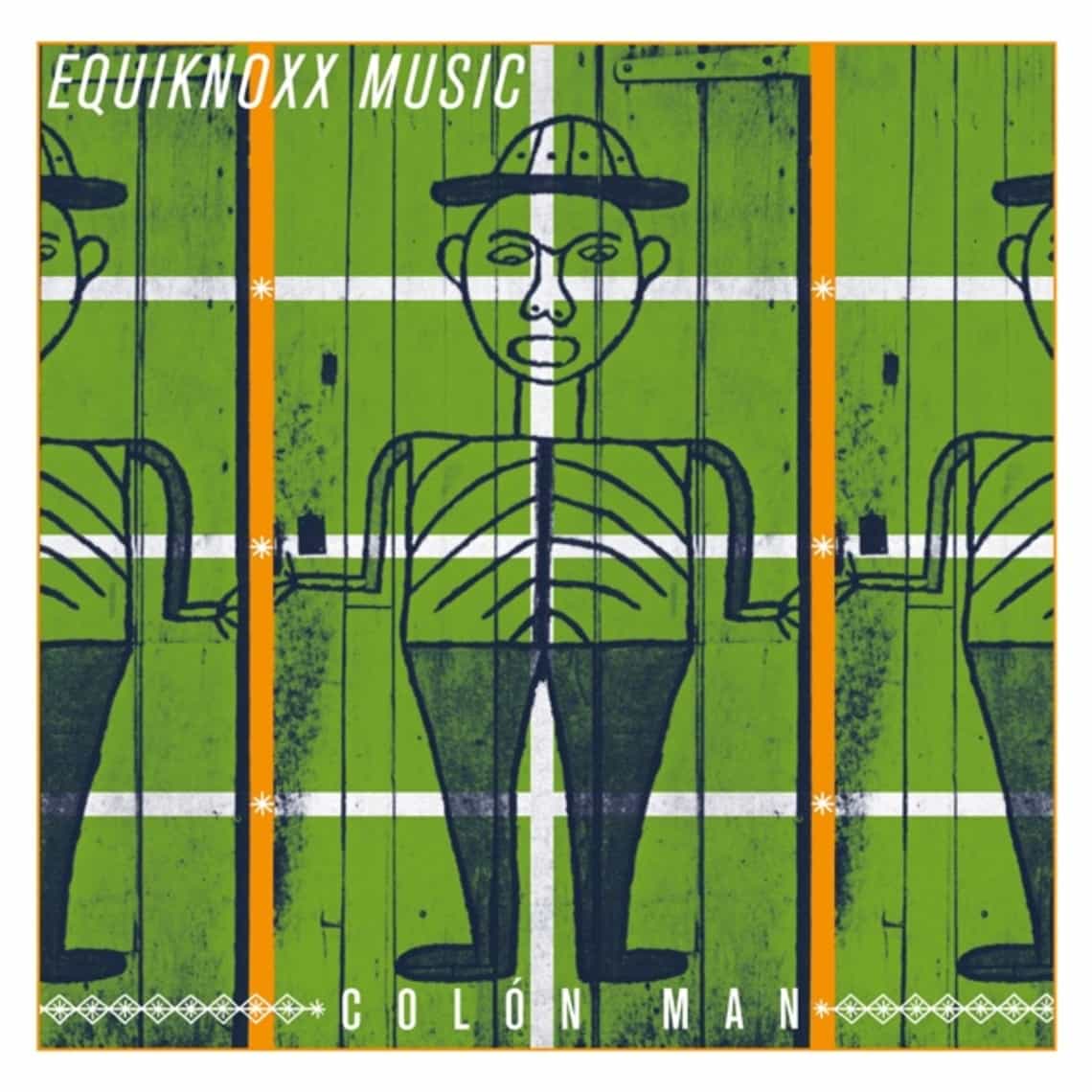
16. Equiknoxx
Colón Man
Released in 2016, Bird Sound Power was a hugely acclaimed project featuring Equiknoxx’s productions dating back to between the late ’00s and 2015. The visionary Jamaican dancehall collective – Gavin Blair aka Gavsborg and Jordan Chung aka Time Cow being the main core – return with their “first proper album”, Colón Man, recorded between December 2016 and June 2017.
More psychedelic and darker than their first outfit, the record skillfully blends Jamaican riddims and futurist electronic sounds. Colón Man gets its name from a Jamaican tale and song about a “mysterious character” who was “one of over 100,000 Jamaicans who returned from working in Cólon on completion of the Panama Canal.”
15. Trio Da Kali and Kronos
Ladilikan
Take a trio made up of Malian griots, then add to this the most revolutionary string quartet of Western music, founded in 1973. The result is an equally enriching and unique musical collaboration. The encounters of violon, alto and cello with Lassana Diabaté’s balafon, Mamadou Kouyaté’s ngoni and Hawa ‘Kassé Mady’ Diabaté’s powerful voice is a true treasure. Trio Da Kali and Kronos Quartet’s new album, Ladilikan, may well become a key reference point in intercultural musical collaborations.
Both bands describe the experience as one of the most interesting in their carriers. Kronos Quartet founder David Harrington considers this record “the most beautiful thing Kronos ever recorded in 40 years”. And when Lassana Diabaté heard the San Francisco-based quartet’s music for the first time, he got so enthusiastic that he exclaimed “this is gonna be the best collaboration of my whole life!” even before having started…
14. Ifriqiyya Electrique
Rûwâhîne
Ifriqiyya Électrique was born out of François Cambuzat’s initiatives. He discovered the Banga ritual in one of his many travels to the Mediterranean territories, and decided to make a film out of the experience. He was then curious to know what would result in a dialog between the ancestral sounds and his own research on post-industrial and noise music. He embarked on this road trip and road movie with Italian bassist Gianna Greco, his bandmate in Putan Club, already used to collaborations with New York post-punk poetess Lydia Lunch, also keen on all types of experimentation. On the Tunisian side, we have Banga of Tozeur, made up of Tarek Sultan, Yahia Chouchen, Youssef Ghazala and Ali Chouchen, playing the traditional instruments of the Banga ritual: tablas, krabebs (castanet-style percussions), nagharat (drum percussions) and voice.
“I do love these different kinds of music,” confesses Cambuzat.”What you want to know about them is already (badly) written on Wikipedia, and I guess it’s enough. The rest of the knowledge you’ll manage to grab depends on how many liters of sweat you’re ready to give to get close to them. My work is only motivated by elevation, sweat, blood, poetry and tears – not your typical colored postcard.”
13. Joey le Soldat
Zambfo
Joël Windtoin Sawadogo was born in 1985 in Burkina Faso (two years before Thomas Sankara’s assassination and Blaise Compaoré’s taking up of power via a coup d’état). He grew up in the village of Koumbri, located in the north of the country, around 140 km from the capital city Ouagadougou. Joey le Soldat – his nickname, meaning “Joey the Soldier” – released his second album Burkin Bâ in 2014. This was a call for unity, showing off a radical flow and groundbreaking electronic production. Three years later, the fight for democracy and social justice has far from ended, and Joey knows it too well, who comes back in full force with the vigorous album Barka.
His songs talk about unpaid salaries, overcrowded hospitals and public universities, and calls to dialog. “Dialog” may well be the keyword of this new album, Barka. Its 12 tracks contain the past and present history of Joey’s country, and more generally, the African continent.
“In order to avoid yesterday’s confusion and the division of our society, we need to resolve our disputes in an amicable way,” recommends Joey. “We need to forget our ethnic or religious differences. The battle we still have to fight is greater than that. We have to stop accusing each other, and rather find the problems rooted inside of ourselves, and unite!”
12. Ibibio Sound Machine
Uyai
Fronted by London-born Nigerian singer Eno Williams, Ibibio Sound Machine is a clash of African and electronic elements inspired in equal measure by the golden era of West-African funk & disco and more modern post-punk and electro.
Uyai means “beauty” in Ibibio language, spoken by the people of the same name living mainly in south eastern Nigeria, but also in Ghana, Cameroon and Equatorial Guinea. Ibibio is a very dancing and rhythmic language, perfectly adapted to the energy of the record Uyai, where Eno chooses to sing in it’s language. More than just danceable, this new album also shares a political stance: “Dance is a form of liberation,” says Eno Williams. It is through the body that we can fight against oppression, and regain joy and pride.
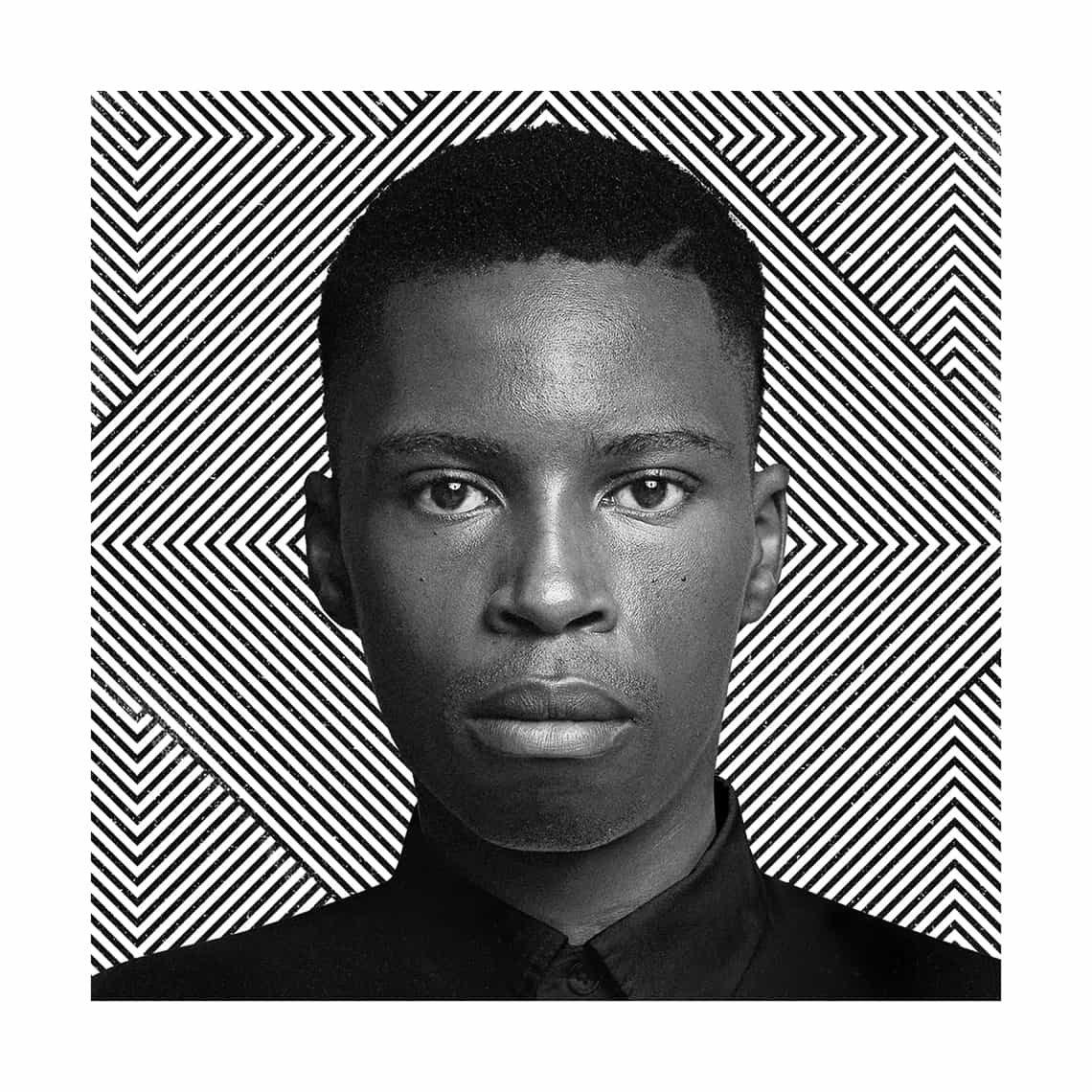 11. Bongeziwe Mabandla
11. Bongeziwe Mabandla
Mangaliso
When Bongeziwe Mabandla first surfaced with his debut album in 2012, he was hailed as the new face of afro-folk, somehow effortlessly able to entwine Xhosa lyrics with traditional music and folk stylings to create something uniquely captivating.
Titled Mangaliso (meaning “marvel” or “miracle”), here truly is a world-class record that confirms Mabandla’s place among the most purposeful and gifted artists working in South Africa today. The LP was produced by Tiago Correia Paulo (Tumi and the Volume, 340ml) who, along with Mike Wright (Zebra & Giraffe), is a member of the live band that will be touring with Mabandla during 2017.
10. Nidia Minaj
Nídia é Má, Nídia é Fudida
Hailing from the ghetto-suburbs of the Lisbon region and then emigrating to Bordeaux, France, the young Portuguese with Cape-Verdean and Guinean ascendancy Nídia (formerly known as Nídia Minaj as a tribute to Nicki) is part of a new wave of artists who mix with subtlety techno-bass, house and African sounds. Signed to Príncipe Discos, a Lisbon-based crew featuring the likes of Marfox and Nigga Fox who take inspiration from the sounds of Angola, Mozambique and Cape Verde, Nídia Minaj is a symbol of this young generation of musicians who renew yesterday’s music.
On her third album, Nídia delivers a more instinctive sound, located somewhere between techno, kuduro, baile funk, Baltimore “Bmore” club, whilst never compromising its roots. The 14 mostly under-three-minute tracks are made of samples, complex syncopations and synth loops. Their common feeling: dance, party and unrestrained sound.
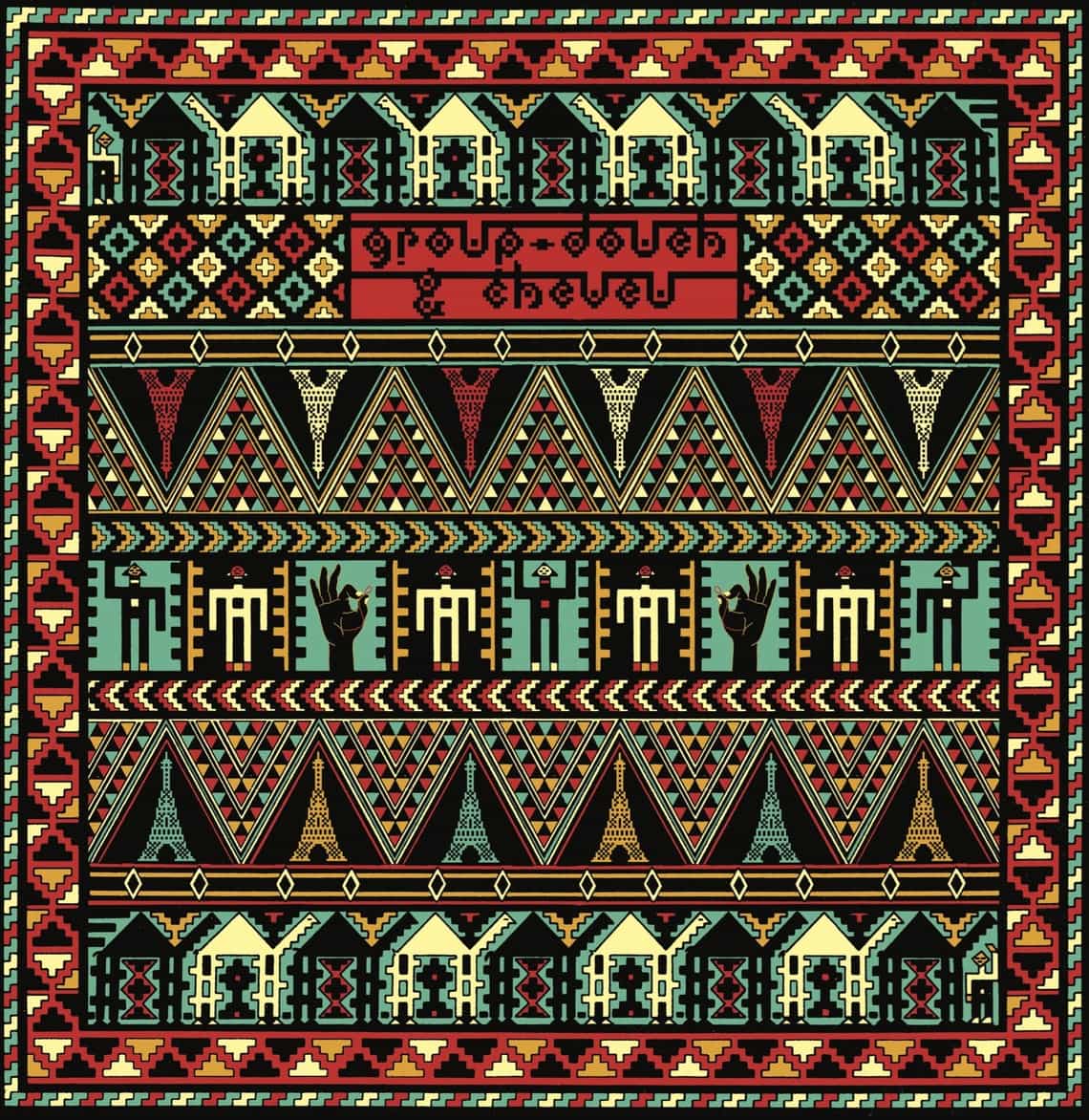
9. Cheveu & Group Doueh
Dakhla Sahara Session
Dakhla Sahara Session is the unvarnished anti-world musical account of a rough, complex and laborious encounter between two very different bands: Group Doueh and Cheveu.
This album takes the listener right into a 10-day human epic odyssey, passing through its attempts, its failures and its moments of grace. This album speaks for the musicians and says: we spilled our guts out, we reached complete exhaustion and total freedom in this illogical, unprepared and expectation-free encounter. This album says: we made it, both happy and tired, and we provide as evidence this 42-minute long musical trance, free of pretension and full of emotion.
8. Vagabon
Infinite worlds
Vagabon is the project of singer and musician Laetitia Tamko. This young Brooklyn-based and Cameroon-brewed multi-instrumentalist is a real D.I.Y. artist and her album follows a lo-fi style that strongly recalls the ’90s.
Her first work titled Infinite Worlds was released earlier this year and is the follow-up to the first two demos Vermont and Persian Garden EP, both recorded in 2014. It’s a short album whose eight tracks make us drift in a universe between indie rock, folk and ambient. Tamko’s music conveys strong and deep emotions, with beautifully mastered expression. Her first try is an instant hit, and chances are we won’t be getting bored of it anytime soon.
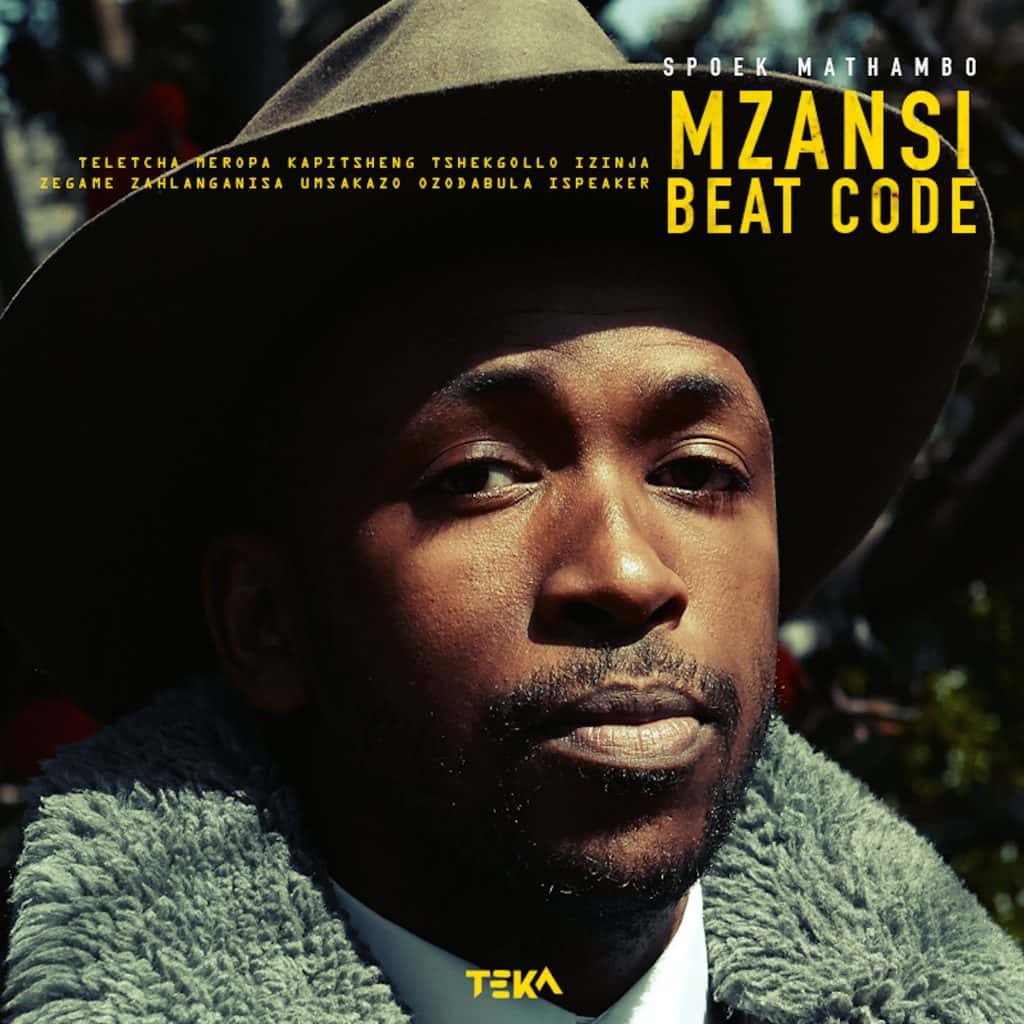
7. Spoek Mathambo
Mzansi Beat Code
With three solo albums and the projects of Fantasma and Batuk, South African music activist Spoek Mathambo never quits. On his new album Mzansi Beat Code, Spoek drops the microphone and hands it to his many guests. Instead, he chooses to focus on production and crafts a hybrid beatmaking, mixing different shades of South African house: bacardi, Durban gqom, sghubu house…
The album features other sounds too: rap, new wave, techno, US house and Zulu folkloric sounds called maskandi, as heard on the single “I Found You”. The latter is an ode to love, chanted by the sensual voices of Kamaja’s own sisters, Nandi and Nongoma Ndlovu.
The result is an irresistibly danceable and coherent album, taking it straight back to Chicago’s raw ghetto house sound of the ’90s.
6. J Hus
Common Sense
For his debut offering, young London-based rapper J Hus crafted together the best of grime, afrobeat, dancehall and early 2000s hip-hop into a unique and vibrant sound.
Born to a Gambian mother, he was initiated to African music at an early age. J Hus (for “hustle”) spent three years in Ghana, his parents’ native land. This explains his strong link to the continent’s pop music you hear in his own productions. His debut studio album, Common Sense, covers a large panorama of the young MC’s influences and skills, as comfortable in dancehall as in rap, grime, afrobeat, r’n’b and garage.
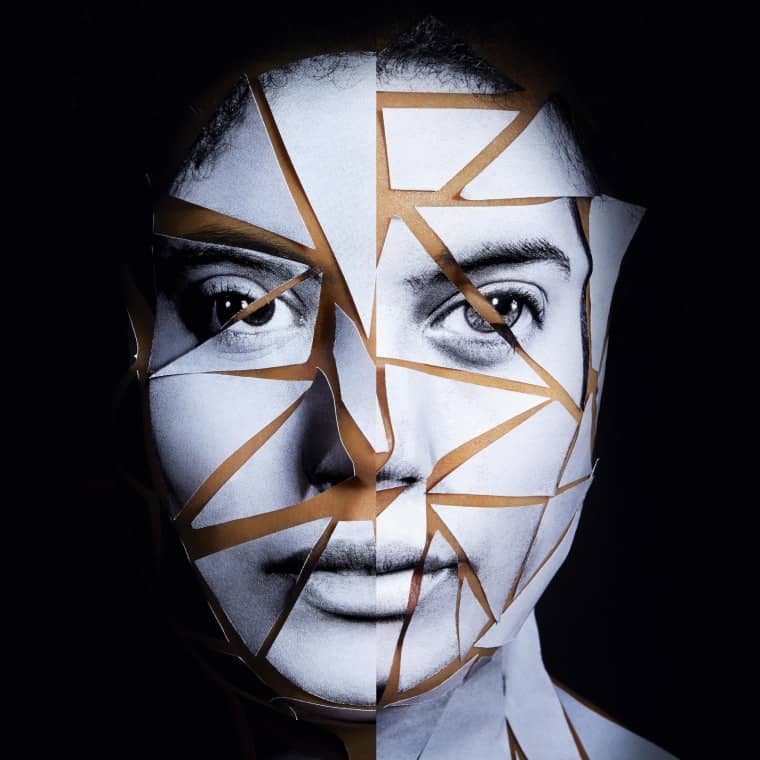
5. Ibeyi
Ash
Two years after the success of their first album Ibeyi – meaning “twins” in Nigerien-Congolese Yoruba language – the Franco-Venezuelan-Cuban sisters Lisa-Kaindé et Naomi Díaz continue their path with Ash. Their last album, a subtle blend of r&b, electronic music and soul, and the result is both organic and complex, production-wise.
Their first record told their own story, and this one is marked by their encounters. They invite great names such as Mala Rodriguez, saxophonist Kamasi Washington – on the beautifully crafted “Deathless”- and pianist Chilly Gonzales – on “When Will I Learn”.
Ash addresses contemporary issues such as feminism, racism and LGBTI rights. Here, again, Ibeyi takes us into an intense and strongly committed musical journey.
4. ÌFÉ
IIII + IIII
Ife is a city located in the south-west of Nigeria. It stands for “love” or “affection” in the Yoruba language. ÌFÉ is also a Puerto Rico-based band that was founded by Otura Mun, mixing Cuban rumba, electronic sounds and Yoruba traditional music.
Texas-born Otura Mun is an African-American professional musician and musicologist who decided to settle in Puerto Rico in 1999. He quickly became a key figure in the local scene, and produced singer Mima and the band Cultura Profética. He was trained in santeria, the cult of the orishas – saints – originating from Africa and brought and maintained by the slaves communities in Cuba and Brazil.
The beauty of ÌFÉ’s music lies in the details, as heard on “House Of Love”. The groove is based on a traditional Afro-Cuban rumba rhythmic pattern, blended with Jamaican dancehall rhythm signature, thus creating a unique and subtle sound.
III + III is an album that takes root in tradition, to which ÌFÉ brings a unique touch, creating a futuristic sound that seems to have propelled the band into an unlimited creativity source.
3. Oumou Sangaré
Mogoya
Mogoya, marks the awaited comeback of diva Oumou Sangaré since her last album in 2009. The Malian singer tackles issues she’s known best for years, human relations – “mogoya” could translate as “today’s human relations”. The lyrics cover the issues African women encounter in their daily lies, and the generally tense situations they have deal with when being in a man’s world.
Yet, Mogoya is also a true turning point: it’s a modern and new path for the traditional artist, as the album also flirts with electronic music. The message it transmits and its desire to talk to various generations is a strong show of commitment.
“Electronic music is what makes Africa dance”, says Oumou. “We need to maintain music from the past. But as I was using these old grooves, the youth were telling me: ‘when are we gonna dance to Oumou’s tracks in the clubs?’ Then I started to think of what I could do for them, without altering my music. And when I heard A.L.B.E.R.T.’s arrangements, I knew this was it! I was responding to the youth’s desires. And this is just beautiful!”
2. Kendrick Lamar
DAMN.
The Compton-based rapper is at the peak of his art. With DAMN., his fourth studio album, he’s put himself beyond any competition. The record features perfectly crafted melodies and a powerful and precise flow.
Two years after the essential To Pimp a Butterfly – which is to the Black Lives Matter generation to what had been Marvin Gaye’s What’s Going On for the ’70s – DAMN. is a more personal and introspective work. Whilst not to deny the artist’s political conscience, it appears as more of a selfward, soul-searching experience. On “Fear”, for example, he recalls an anxiety-driven life, and even confesses his “fear of losin’ creativity”. It’s a fair enough fear for Kendrick, even if he still sounds very much inspired at the time.
DAMN. is rawer and rougher than the rapper’s previous albums, and still very coherent over the course of its 14 tracks, that you can choose to hear in the initial released order as well as backwards on the recently published collectors version.
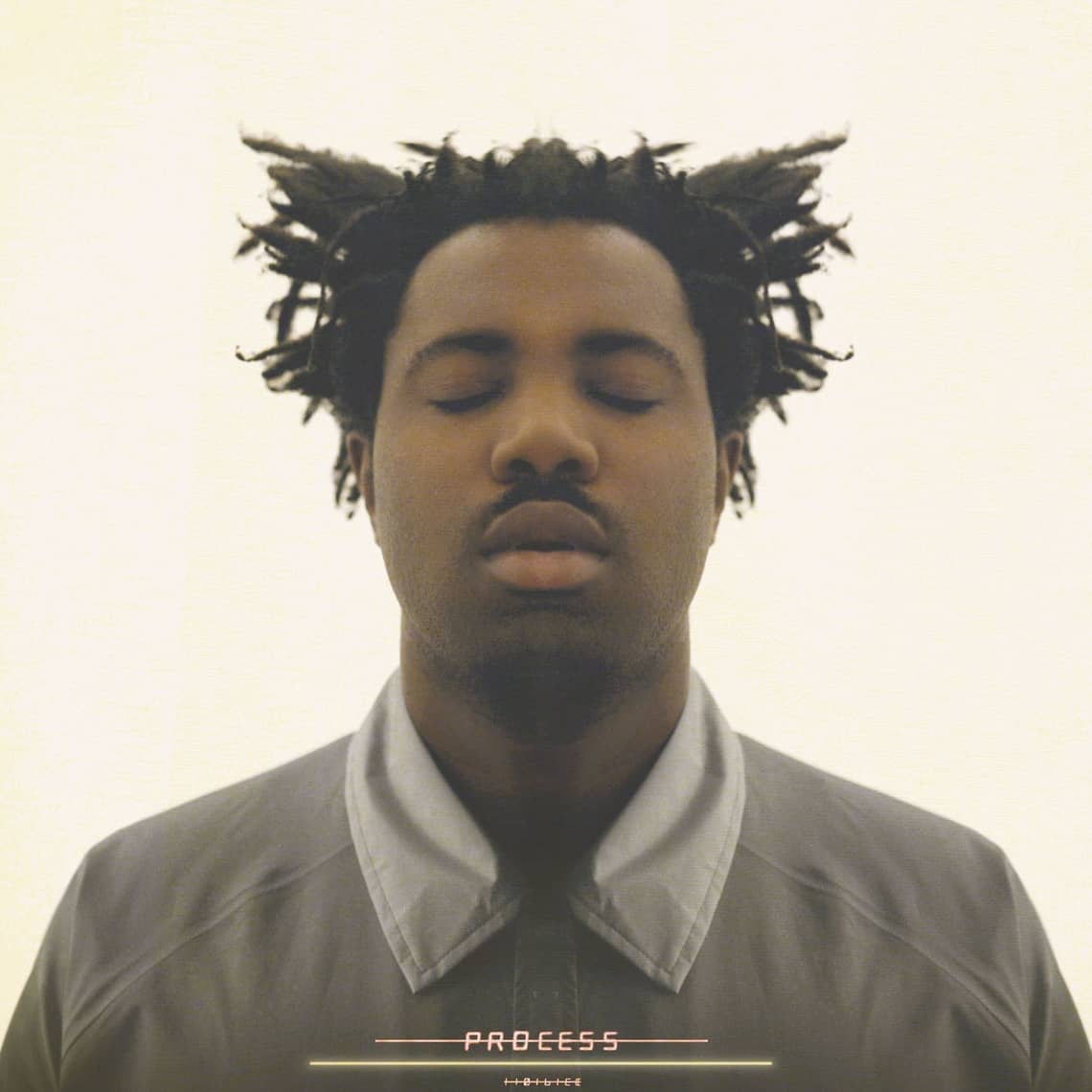
1. Sampha
Process
After having worked with some of the greatest – Drake, Kanye West, Frank Ocean, SBTRKT and Solange – British musician Sampha finally unveiled his first studio album, Process. The result is a radiant and meditative record that burns brighter over its 43-minute tracklist. The artist rises to an emotional world of sadness, beautifully mastering the piano – an instrument he’s played since he was 3 years old.
Playing the ivories has become the key foundation of Sampha’s personal development. In his own world, the piano is one of the few things that has always been around. “No one knows me like the piano in my mother’s home / You would show me I had something some people call a soul” he sings on “(No One Knows Me) Like the Piano”.
The loss of his mother, who died of cancer, left deep emotional wounds in him, and can be clearly heard.
